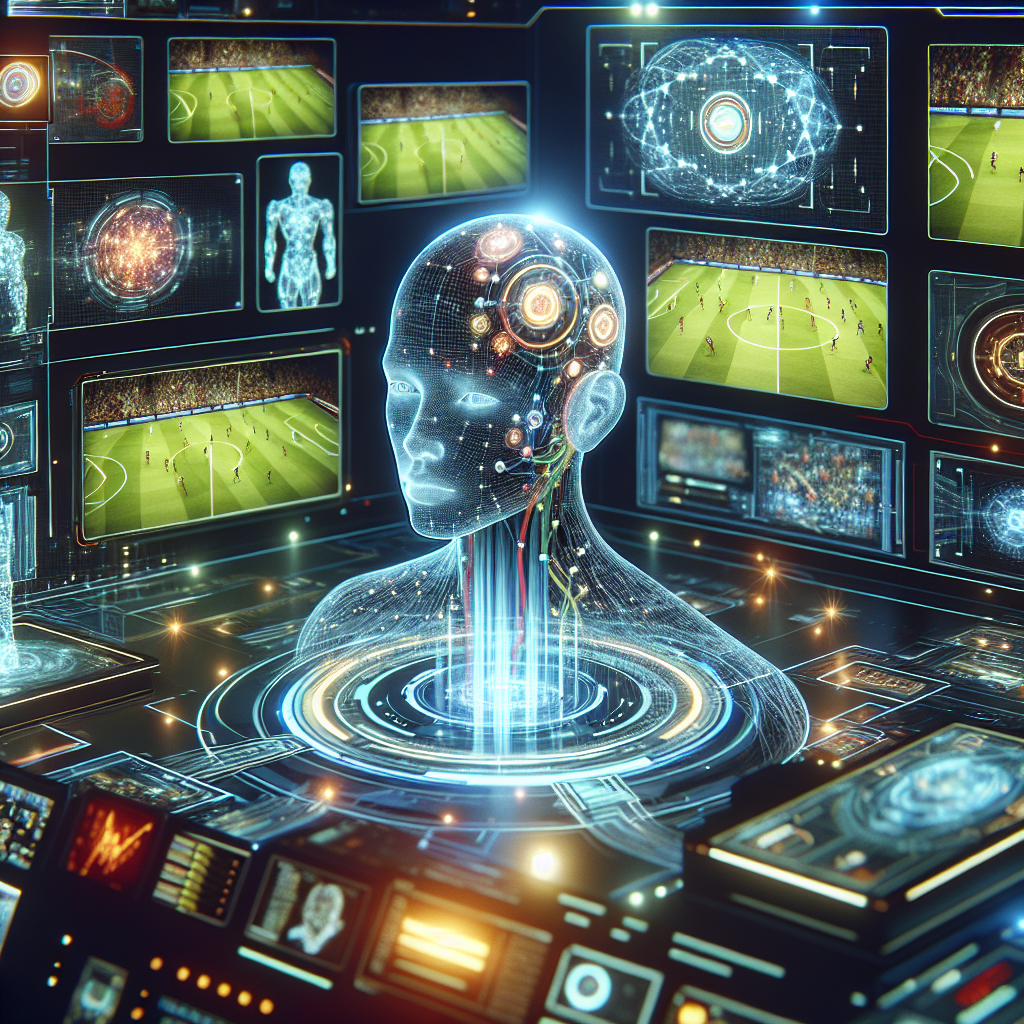The Future of Sports Broadcasting: AI Commentators
In recent years, the world of sports broadcasting has seen significant advancements in technology that are shaping the way fans experience and engage with their favorite games. From high-definition cameras to virtual reality experiences, the industry has continuously evolved to provide viewers with more immersive and interactive content. One of the most intriguing developments in this space is the rise of artificial intelligence (AI) commentators.
AI commentators are computer programs that use machine learning algorithms to analyze and interpret sports events in real time. These programs can provide play-by-play commentary, analysis, and even predictions based on data points and patterns they have learned from past games. While AI commentators are still in their early stages of development, they have the potential to revolutionize the way sports are broadcasted and consumed by fans around the world.
Benefits of AI Commentators
There are several benefits to incorporating AI commentators into sports broadcasting. One of the most significant advantages is the ability to provide more personalized and insightful commentary to viewers. AI commentators can analyze data from multiple sources, such as player statistics, historical trends, and real-time game events, to offer in-depth analysis and predictions that human commentators may not be able to provide.
Additionally, AI commentators can enhance the viewing experience by providing real-time updates and statistics that are relevant to the game. For example, they can highlight key moments, player performances, and game-changing plays as they happen, giving viewers a more comprehensive understanding of what is unfolding on the field.
Another benefit of AI commentators is their potential to reach a broader audience. By providing commentary in multiple languages and dialects, AI commentators can cater to fans from around the world who may not speak the same language as traditional commentators. This can help sports leagues and broadcasters expand their reach and grow their global fan base.
Challenges and Limitations
While AI commentators offer many advantages, there are also challenges and limitations that need to be addressed before they can become mainstream in sports broadcasting. One of the main challenges is the need for continuous training and refinement of the AI algorithms. To provide accurate and insightful commentary, AI commentators must be trained on a vast amount of data and be able to adapt to changing game dynamics and player performances.
Another challenge is the potential for bias in AI commentary. Since AI algorithms are trained on historical data, there is a risk that they may perpetuate biases that exist in the sports industry, such as gender or racial bias. It is essential for developers to implement measures to mitigate bias and ensure that AI commentators provide fair and unbiased commentary to all viewers.
Furthermore, there is a concern that AI commentators may lack the emotional intelligence and human touch that human commentators bring to sports broadcasting. While AI commentators can provide data-driven analysis and insights, they may struggle to convey the excitement, passion, and drama that human commentators can bring to a game. It will be crucial for developers to find a balance between data-driven analysis and emotional engagement to create a compelling viewing experience for fans.
FAQs
Q: How do AI commentators work?
A: AI commentators use machine learning algorithms to analyze and interpret sports events in real time. They are trained on a vast amount of data, including player statistics, historical trends, and real-time game events, to provide play-by-play commentary, analysis, and predictions.
Q: Can AI commentators replace human commentators?
A: While AI commentators offer many advantages, they are not meant to replace human commentators entirely. AI commentators can enhance the viewing experience by providing data-driven analysis and insights, but human commentators bring emotional intelligence and a human touch that AI may struggle to replicate.
Q: Are AI commentators biased?
A: There is a risk that AI commentators may perpetuate biases that exist in the sports industry, such as gender or racial bias. Developers must implement measures to mitigate bias and ensure that AI commentators provide fair and unbiased commentary to all viewers.
Q: How can AI commentators benefit sports broadcasting?
A: AI commentators can provide more personalized and insightful commentary, reach a broader audience, and enhance the viewing experience by offering real-time updates and statistics. They have the potential to revolutionize the way sports are broadcasted and consumed by fans around the world.
In conclusion, AI commentators have the potential to transform the world of sports broadcasting by providing more personalized, insightful, and interactive commentary to viewers. While there are challenges and limitations that need to be addressed, the future of sports broadcasting looks promising with the integration of AI technology. As developers continue to refine and improve AI commentators, fans can expect a more immersive and engaging viewing experience that enhances their love for the game.

